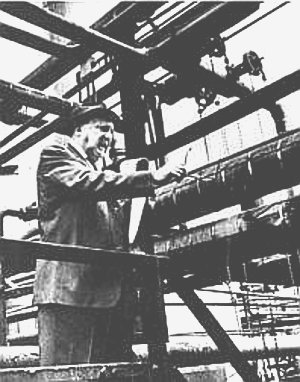Are you considering auctioning your valuable possessions but unsure about the appraisal process? Auction appraisals play a crucial role in determining the estimated value of your items, setting reasonable expectations, and ensuring you get a fair deal. In this blog post, we will explore the key steps involved in the auction appraisal process and offer useful tips on how to prepare effectively and know what to expect.
1. Understanding the Importance of Auction Appraisals
An auction appraisal is a professional evaluation carried out by experts who assess the value of your items based on their condition, rarity, historical significance, and market demand. It provides you with an accurate estimate and ensures transparency during the auction process. Understanding the significance of auction appraisals will help you recognize their role in maximizing your potential returns.
2. Research and Find Reputable Appraisers
To ensure a smooth auction appraisal process, it is essential to find reputable and experienced appraisers. Look for professionals who specialize in the specific type of items you own, such as art, jewelry, antiques, or collectibles. Seek recommendations from friends, family, or fellow collectors, and check online reviews and ratings. Choose someone who has a proven track record and belongs to respected organizations like the Appraisers Association of America or the International Society of Appraisers.
3. Gather Necessary Documentation
To streamline the auction appraisal process, gather all relevant documentation related to your items. This may include purchase receipts, certificates of authenticity, appraisals from previous years, repair records, or any provenance details. Organizing these documents ensures that the appraisers have a comprehensive understanding of your item's history and can provide a more accurate evaluation.
4. Clean and Document Your Items
Before heading into an appraisal, make sure to clean and document your items properly—dust off antique furniture, polish silverware, or remove any stains from paintings. Taking clear photographs from different angles will help the appraiser evaluate your items remotely. Ensure that you include all significant details, such as signatures, markings, dimensions, and any imperfections. Digital documentation is crucial for insurance purposes and guarantees that you have a record of each individual piece.
5. Be Prepared for In-Depth Evaluation
During the appraisal, appraisers may conduct a thorough examination of your items. They will inspect the condition, check for authenticity, and potentially use specialized tools or equipment. The process may take longer for complex or rare items, so be patient. Remember that the appraisal process is carried out with the utmost care and expertise to provide an accurate estimate.
6. Ask Questions and Seek Clarification
While the appraiser evaluates your items, don't hesitate to ask questions or seek clarification. This is your opportunity to gain insights into the factors that contribute to the value of your possessions. Discuss the market trends and demand, understand any unique features that enhance your item's appeal, and inquire about potential auction strategies. The more information you gather during the appraisal process, the better equipped you'll be to make informed decisions.
7. Receive Your Appraisal Report
After the assessment, the appraiser will provide you with a comprehensive appraisal report that outlines the estimated value of your items. This report will serve as a valuable resource when discussing the sale price or submitting insurance claims. It is crucial to carefully review the report, ensuring it accurately reflects your items and includes all relevant details. If you have any concerns or queries, don't hesitate to reach out to your appraiser for clarification.
Conclusion
The auction appraisal process is an essential step before entering any auction, ensuring you have realistic expectations and are well-informed about the value and potential returns of your items. By following the steps outlined in this blog post, such as finding reputable appraisers, gathering necessary documentation, and actively participating in the appraisal process, you will be better prepared for a successful auction experience. Remember that the appraisal process provides a professional assessment that facilitates transparency and enhances your overall auction experience.
Got questions about the appraisal process? Let us help! Contact us today to learn more about what we can do for you!




